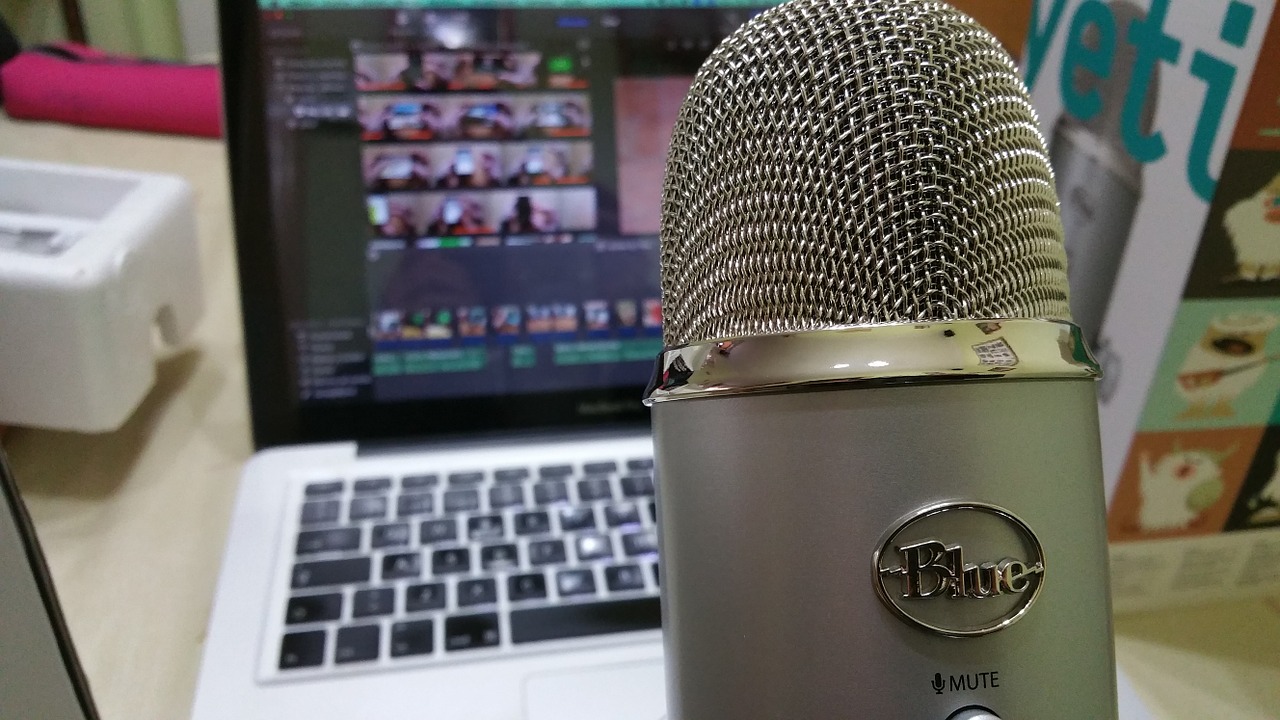How To Write A Killer Podcast Script
Thanks to the internet, we are connected to millions of people sharing the same interests, opinions and passions. Via writing in different forums or starting a blog, we can become part of this huge exchange of points of view.

But this is not the only way to get in touch with people that watch the same shows, like the same sport or follow the same events. In recent years, publishing podcasts has become a big part of this exchange of opinions.
Special platforms allow you to upload your podcast for millions of listener to stream or download it, and especially YouTube became a popular sharing point for these private radio shows.
While the recording and the actual talking is the biggest part of the podcast, no recording session is successful without a good and structured script. Today’s blog article thus concentrates on some guidelines and blueprints for a killer podcast script!
Podcast Groundwork: The Script
Of course you could just start recording and upload your podcast to the web, but to sound professional, a little planning ahead is necessary. Listeners are used to a certain style or set up from shows on the radio, so why not follow in those successful footsteps?
Preliminaries
![]() First, you have to decide about the contents of your podcast. While the topics can differ, some questions you should ask yourself always stay the same:
First, you have to decide about the contents of your podcast. While the topics can differ, some questions you should ask yourself always stay the same:
- Will your podcast contain one topic or more?
- Will you include an interview? Or a Q & A?
- Should you include content from other sources for reviews or referencing?
The typical length of a podcast are 10 – 15 minutes. Of course you can mix this up with the one or other “quickie” of 3 to 5 minutes or even a longer one when you have an interesting guest for an interview.
![]() Other preliminaries should include the kinds of audible breaks you want to include in your podcast. This includes jingles and musical interludes as well as background sounds or transitions between different topics. These cues are not meant to distract your listeners, but to show that you are changing the topic and to give them a little break to digest what you have said.
Other preliminaries should include the kinds of audible breaks you want to include in your podcast. This includes jingles and musical interludes as well as background sounds or transitions between different topics. These cues are not meant to distract your listeners, but to show that you are changing the topic and to give them a little break to digest what you have said.
Writing
When writing your script, there are a few things to keep in mind.
 Language
Language
Keep the language and style you write your script in casual, conversational and friendly. Don’t be afraid to show enthusiasm and disdain, depending on the topic. Limit the use of technical terms to only the really relevant ones.
Furthermore, make sure to write for the ear instead of the eye. Use clear language and short sentences.
Using contractions make you sound more casual and conversational. Replace written “do not” and “there is” with “don’t” and “there’s”.
Components
![]() There are some key components your podcast should contain next to the topics talked about and/or interview.
There are some key components your podcast should contain next to the topics talked about and/or interview.
One is the introduction that, in two or three sentences, sums up what you are going to talk about. A quick introduction of yourself and the recurring theme of your podcast, if it has one, is part of the introduction as well.
Another component are the closing words in which you thank your audience and interview partner as well as giving a brief, one or two sentence long outlook of the next podcast. This is also the place where you can ask your audience for feedback or wishes.
 Structure
Structure
If you’re talking about different topics, it’s advised to start with the most interesting one. That way, you’ll keep the attention of your audience. Afterwards, you can introduce them to more in depth and specific topics.
Within the single topics, make sure that your listeners can easily follow your trail of thought. Don’t make them replay the podcast just to understand what you’re hinting at or where you’re coming from.
 Research
Research
Make sure that your research matches your quality standards. If you are going to review a movie, check out reviews from IMDb or popular magazines and news papers as well. If you are talking about a current news topic make sure that you are up-to-date with your facts.
Tips & Tricks
Here are some more tips and tricks that will help you to create the best script for your podcast.
- Use this script timer to find out how long your podcast will be with your script.
- Read your script out loud before recording to find miss-sounding sentences and grammatical errors.
- Online services can help you to find grammar mistakes as well.
- Writing has a rhythm! Vary between the length of your sentences to get a nice rhythm for your recording.
- Make your script available in addition to your podcast as a service to your listeners. In this case, make sure you use a cohesive and easy to follow formatting and avoid spelling mistakes.
- Pay attention to punctuation. Commas, exclamation marks, dashes, hyphens and periods stand for different moods and pauses of different lengths.
- Use an easily readable font and a font size of about 14 point to make the script easily readable. 1.5 spaced lines help as well.
- If a page ends mid-sentence, rather include a page break. Having to flip pages disrupts the reading flow.
- Spelling out abbreviations and symbols makes it easier to read them later.
Blueprint: How Your Script Could Look Like
Of course the structure of your podcast should depend on your topics, audience and personal preference. As a start or rough guideline, consider the following set-up:
- Intro; introduce yourself and what you are going to talk about – 1 minute
- Intro jingle; use the same for each show and make it your trademark – not longer than 1 minute
- Topic 1 – 3 minutes
- Topic 2 -3 minutes
- Topic 3 – 3 minutes
- Outro; thank your audience and guests, give outlook of the next show – 2 minutes
- Outro jingle; could be the same as the intro jingle – 1 to 2 minutes
